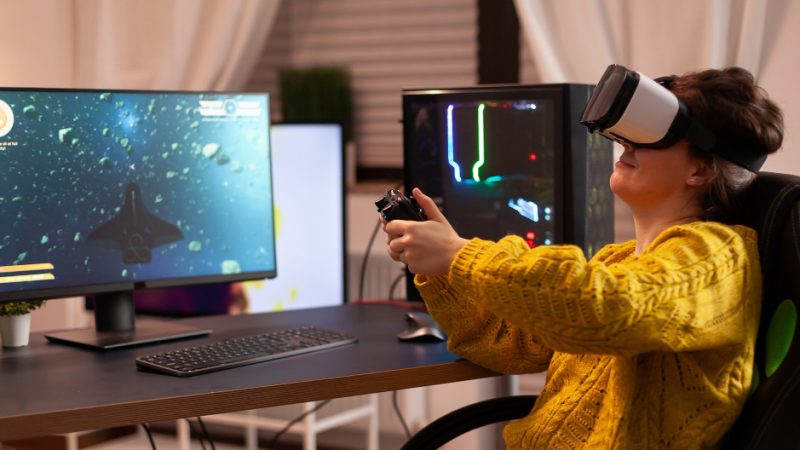Gaming and Cognitive Development: What are Games Doing to Our Brains?

Throughout history, humans have created forms of entertainment that allow them to compete with themselves or have fun during leisure. One such form of entertainment is gaming. Gaming has an expansive definition and may mean different things to different people. However, for the sake of this article, we will base our discussion on video games.
Since its origin in the 1900s, video games have evolved from simple simulations like Spacewar to complex high-definition multiplayer video games like Call of Duty. One interesting thing about gaming as a form of entertainment is that anybody from any age bracket can do it.
So, it’s safe to find out the possible effects of these video games on our cognitive development as human beings, and that’s precisely what we would see in this article. Let’s go!
Behavior and Emotion
In an article based on a survey to study video gaming obsession across different generations, it was discovered that goal-based designs and emotional storylines make them addictive. This survey included 2,000 respondents from both the US and the UK. It found that video games can affect behavior and emotions and may lead to addiction.
The article states that the sense of accomplishment derived from these games causes the brain to release dopamine (a neurotransmitter that controls the feelings of pleasure and satisfaction) which urges these gamers to spend long hours playing them. This leads to gaming addiction that may result in the negligence of other parts of the gamer’s life, emotional instability, behavioral problems, and difficulty finding pleasure outside gaming.
Researchers agree that video games’ ability to satisfy the human brain’s desire for instant gratification, fast pace, and unpredictability gives them addictive qualities.

Memory and impulse control
A study sponsored by the National Institutes of Health collected data from almost 2,000 children divided into two groups. One group consisted of only kids who played games for over three hours daily, while the other never gamed. The researchers carried out brain imaging on these two groups of children and tested them on short-term memory and impulse control.
The results from the study showed that the group of video gamers performed better on the test, and their brain imaging showed more brain activation in regions associated with working memory and attention. In the past, other scientists have also attested to video games’ ability to stimulate the brain’s parts responsible for vision and movement, but is that all there is?
Learning and thinking
The consistent and repetitive practice of anything can rewire the brain and stimulate brain cell connections. With time, repeating a particular activity creates neural pathways in the brain between different regions, and these pathways become stronger as you practice these activities more. This is how the learning process occurs. Scientists believe that the reward-based nature of games can make them effective as brain training tools.
Studies have also shown that certain video games, like action games, can improve a person’s visual capabilities and help them better store, manipulate, and rotate objects at the brain’s memory centers. Also, some games involve strategy, decision-making, and multitasking.
Practicing these skills through these games may enhance an individual’s ability to develop and apply these skills in real-life situations. This claim is supported by research involving a group of gamers who spent an average of 10 hours on games daily and another group who spent below 2 hours daily. The study discovered that the 2 hours gamers had more gray matter (the part of the brain responsible for imagination/thinking) than the 10-hour gamers.
Takeaway
Gaming can have both negative and positive effects on our cognitive development as human beings. Studies have shown that the types of games we play and the time we spend on the games can impact our behaviors, memory, impulse control, and learning ability. In conclusion, balanced gaming habits are generally more healthy than addictive gaming.






